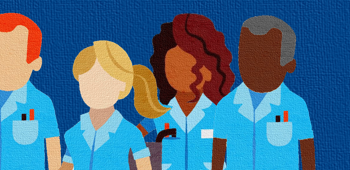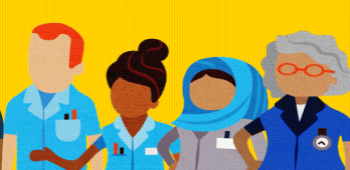Dyslexia
Please check back regularly for updates as we continue to develop this resource
This page looks at adjustments and strategies that can assist healthcare professionals with Dyslexia.
Dyslexia
Strengths
- Can view things from a different perspective
- Problem solving skills
- Empathy
- Creativity
- Visual/ good pattern recognition
Effects / Difficulties
- Difficulties with spelling and fluent word reading
- Slower verbal processing speed
- Slower reading
- Reduced verbal memory and working memory
Students
- Extra time in exams
- Quiet area to write notes
- Use of software such as text to speech and speech to text, Grammarly, spellcheckers
- Study skills support
- Reading pen
- Recordings of lectures
- Access to handouts prior to lectures
- Longer library loans
- Recognition of difficulties when marking
Students should expect that their university and placement providers provide reasonable adjustments. Further support can also be accessed through Disabled Students Allowance.
Employees
- Quiet area to write notes
- Use of software such as text to speech and speech to text, Grammarly, spellcheckers
- Digital voice recorder for note taking (encryption for GDPR)
Employers should make reasonable adjustments under the Equality Act 2010. These may be subsidised by the government scheme Access to Work which provides non medical help (including coaching, transport) as well as equipment, based on a workplace assessment.
Reasonable adjustments should also be provided during recruitment processes.
See the Peer Support Service's Health Ability Passport guide for more information on reasonable adjustments.
- Use of a notebook
- A list of commonly drugs and how to pronounce common terms
- Allow time for processing of questions, don’t just repeat it or rephrase
- Coloured paper and overlays/coloured lens in glasses may be useful for those with stereoscopic sensitivity/ Irlens syndrome
- May need to be told several time to remember something or need to practice multiple times to complete a skill but once embedded will usually achieve successfully.
- Give clear notes of meetings to help with memory and not having to listen and write at the same time

Kaynath's story

Share your story
We want to hear from neurodiverse members to improve our resources. Email us today to share your story.
Reasonable adjustments case study: Dyslexia
Read about the adjustments and support put in place to help her thrive.










